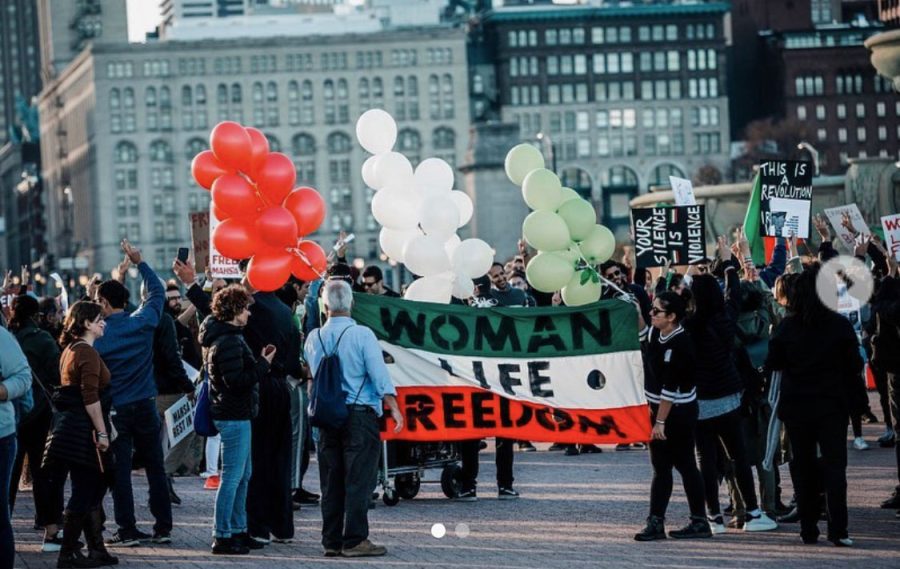First person sentenced to death amid protests challenging Iranian government
This week, an Iranian court issued the first death sentence in connection with recent protests.
This week, an Iranian court issued the first death sentence in connection with recent protests. According to state media, an unnamed individual was convicted of “enmity against God,” as well as “spreading corruption on Earth.”
The protests, which started in September, were sparked by the death of Mahsa Amini. Amini, a 22-year-old Kurdish-Iranian woman, was detained for violating the nation’s conservative dress code, and she died while in the custody of Iran’s morality police. Her death sparked protests and led to an increase in women protesting by burning their hijabs and cutting their hair short.
Since then, thousands of people in Iran have taken part in nationwide demonstrations. Iranian authorities have pushed back in a brutal crackdown. More than 1,000 people in the Tehran province have been charged for their alleged involvement in the protests. According to the Norway-based Iran Human Rights NGO, security forces have killed at least 326 people since the start of the protests two months ago. The dead include 43 children and 25 women.
Another group, the Human Rights Activists News Agency (HRANA), which is based outside of Iran, puts the death toll at 341. HRANA has also reported that another 15,800 protesters have been detained, and that 39 security personnel have been killed.
The true number of those who have died can not be verified independently because of the widespread censure of non-state media, the internet, and protest movements in the region. The number of those who have been killed differs between sources, including opposition groups, journalists tracking the protests, and international organizations.
Iran’s Revolutionary Court issued the sentence to a protester who had allegedly been caught setting fire to a government building. The individual was convicted on the charge of “disturbing public order and peace, community, and colluding to commit a crime against national security, war and corruption on Earth, war through arson, and intentional destruction” according to state news agency IRNA. It was also noted by IRNA that these charges are preliminary and can be appealed.
Another court has sentenced five individuals to serve between 5 and 10-year sentences for national security and public order charges.
There have been warnings by human rights groups that Iranian authorities may be planning to conduct “hasty executions”. According to Iran Human Rights, at least 20 other protesters are facing charges that are punishable by death.
Iranian officials have portrayed the protests as “riots” instigated by Iran’s foreign enemies. Last week, judiciary chief Gholamhossein Mohseni Eje’i warned that the so-called “rioters” could be charged with “moharebeh” (enmity against God), “efsad fil-arz” (corruption on Earth) and “baghy” (armed rebellion). All of the charges can carry the death penalty in Iran’s Sharia-based legal system. As well, people possessing and using a weapon or firearm, disrupting national security, or killing an individual could receive “qisas” (retaliation in kind).
According to judiciary figures, more than 2,000 people have already been charged in connection with participation in the “recent riots.”
Internationally, the European Union has imposed sanctions on 29 Iranians and three Iranian entities that the EU believes is “responsible for the suppression of the Iranian protesters”. The United Kingdom has also announced a new round of sanctions, targeting multiple individuals.




